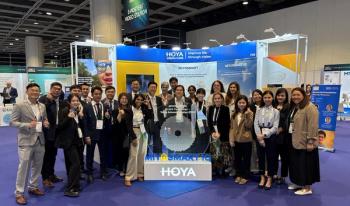
Prepare for integrative pediatrics and pediatric optometry
Get a closer look at integrative pediatric medicine, its roots and its potential impact on the future of pediatric optometry.
In academic circles, pediatric integrative medicine has its roots in developmental-behavioral pediatrics. In the public domain, and in many research circles, this approach is usually referred to as complementary and alternative medicine (CAM). The National Institutes of Health has a national CAM center (the National Center for Complementary and Alternative Medicine), and parents have increasingly turned toward this area of care when looking for guidance on wellness or chronic, rather than acute, medical conditions.
It is safe to say that this is one area in which optometry has pioneered, and in fact has been light years ahead of medicine. Behavioral optometry has its origins in the Optometric Extension Program, which was formed in 1928 and continues to excel in education. Developmental optometry rose to prominence with the formation of the College of Optometrists in Vision Development in 1970.
Until the latter half of the 20th century, optometry was a relatively drugless profession, pioneering in the application of lenses, prisms, and vision therapy. No wonder, then, that optometry and optometrists placed a strong emphasis on the following areas:
Optometric education shifted in the second half of the 20th century to place more emphasis on pharmacologic and procedural approaches to diagnostic and therapeutic care. In 1993, Bruce Moore, OD, and I co-authored the book Clinical Pediatric Optometry, in which we built a bridge across the divide between functional and structural approaches. Optometry was uniquely positioned at the forefront of what Scheiman and Wick referred to in their textbook on binocular vision as "integrative analysis." The challenge was to take concepts in developmental and behavioral vision and integrate them into not only a classical motif, but also a more emergent pharmacologic and technologic framework.
Integrative pediatric medicine begins with maternal health and places great emphasis on how the environment shapes genetic expression and development. Although wellness and disease prevention remain its cornerstones, the rise of developmental-behavioral disorders, such as attention deficit and autism spectrum, has led parents to practitioners who are receptive to therapeutic interventions, once considered outside the mainstream of medicine.
Ray Wunderlich, MD, was a pediatrician well ahead of his time in the early 1950s when he wrote about the role of optometry in holistic care. The influence of "lifestyle factors" is now part and parcel of articles and lectures in many areas of optometry, but has only recently trickled down toward pediatric care. The primary care movement in optometry over the past 25 years has been dominated by attention to emmetropization, strabismus, amblyopia, and disease. It is time to re-direct the spotlight to lifestyle analysis and counseling because, as Dr. Weil noted, patterns of behavior that influence long-term health are often set in childhood.
Regarding pediatric optometry, lifestyle factors begin in infancy with sleep patterns, nutrition, and early developmental milestones. Visual hygiene, lenses, prisms, light, color, and the development of visual-spatial intelligence complement the principles of integrative pediatric medicine. The continuum of integrative pediatric care exists in some manner in each of our practices.
A trio of influential pediatricians, Timothy Culbert, MD, Kathi Kemper, MD, MPH, and Lawrence D. Rosen, MD, predict that integrative principles and methods will soon be considered core curricula in all healthcare fields.
Are you ready for the revolution?
Leonard J. Press, OD, FCOVD, FAAO, is Optometric Director of the Vision & Learning Center in Fair Lawn, New Jersey. Readers may contact Dr. Press at
Newsletter
Want more insights like this? Subscribe to Optometry Times and get clinical pearls and practice tips delivered straight to your inbox.





























